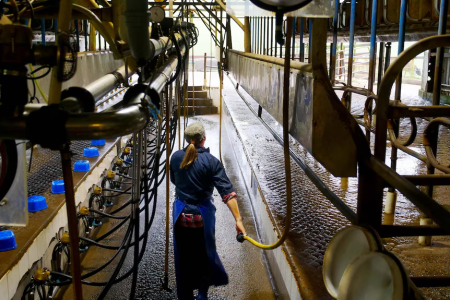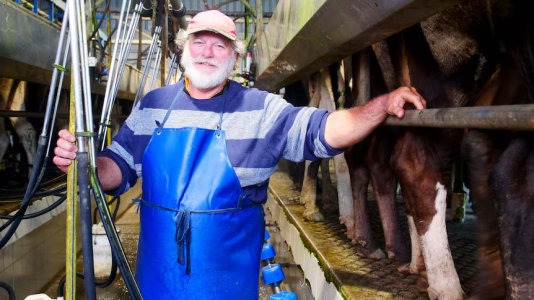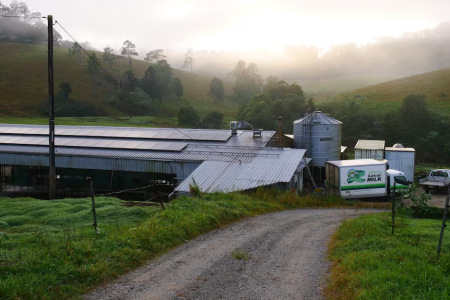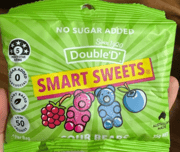Last Eungella dairy farm closing as milk becomes 'cheaper than water'
By
ABC News
- Replies 26
As the morning sun pierces a patchy fog, Dale and Paula Fortescue herd their dairy cows into their mountaintop milking shed for perhaps the last time.
The couple are the last dairy farmers at Eungella, west of Mackay, an area that was once home to about 60 dairies.
They have operated the Eungelladale dairy for 17 years and, despite "unbelievable" community support, they have decided to close once they have filled the last of the bottles in stock.
Mr Fortescue said rising production costs, low consumer prices, and two years of wet weather had made it impossible for the farm to turn a profit.
"It was a big decision, but we think it's the right one," he said.
"We were just dying a slow death."
Chief executive Joe Bradley said the number of Queensland dairy farmers had fallen from 1,500 to 220 in the past 25 years.
"There's just not the money in it now for farmers to stay," he said.
"The costs have gone through the roof, and what we receive for our product hasn't kept pace, and people are leaving the industry."
"That really destroyed the price of milk, and they keep that at a ridiculously low level, which then devalues the whole of dairy," he said.
Mr Bradley said the whole supply chain had been under stress since milk became "cheaper than water".
"The problem is that because the returns on dairy have been so low for so long now, no farmers have money put away for a disaster or a downturn, and now every time you get some sort of an incident, people have no option but to shut up shop," he said.
Federal Agriculture Minister Julie Collins said the government's mandatory Food and Grocery Code of Conduct came into effect from April to help support the industry.
She said the new code would address the imbalance between supermarkets and suppliers, particularly the smaller ones.
Ms Collins said the government was also reviewing the Dairy Code of Conduct to ensure it worked "as intended and remains fit for purpose".
But Mr Fortescue said the savings were not enough to see them through when consecutive wet years disrupted milk production.
Eungella Chalet manager Tess Ford said it had been a privilege to use "beautiful" local milk on her menu.
She said it would be sorely missed.
"I'm devastated," she said.

"My family had a farm up here when we were kids, so to have lived long enough to see the last one close is a very sad day."
Ms Ford said it also raised questions about who would supply milk to her business.
"It's going to be a bit of a challenge to find a supplier; only certain people will come to Eungella to deliver," she said.
"A third of production has dropped in Australia and it's only going to get worse," he said.
"Farmers just want a fair return for their product."
Although Mr Fortescue hopes he can pivot his farm into beef production, the last days of dairy farming will be bittersweet.
"People let big business roll over the top of everything you do," he said.
"So, the last dairy in Eungella says goodbye.
"And unfortunately, that's how it goes."
By Bryn Wakefield and Liam McNally
The couple are the last dairy farmers at Eungella, west of Mackay, an area that was once home to about 60 dairies.
They have operated the Eungelladale dairy for 17 years and, despite "unbelievable" community support, they have decided to close once they have filled the last of the bottles in stock.
Mr Fortescue said rising production costs, low consumer prices, and two years of wet weather had made it impossible for the farm to turn a profit.
"It was a big decision, but we think it's the right one," he said.
"We were just dying a slow death."
Dairy closure trend
The Fortescues are not the only Queensland dairy farmers leaving the industry, according to advocacy group eastAUSmilk.Chief executive Joe Bradley said the number of Queensland dairy farmers had fallen from 1,500 to 220 in the past 25 years.
"There's just not the money in it now for farmers to stay," he said.
"The costs have gone through the roof, and what we receive for our product hasn't kept pace, and people are leaving the industry."
'Cheaper than water'
Mr Bradley said the battle to stay profitable started 10 years ago when supermarkets introduced dollar-a-litre milk."That really destroyed the price of milk, and they keep that at a ridiculously low level, which then devalues the whole of dairy," he said.
Mr Bradley said the whole supply chain had been under stress since milk became "cheaper than water".
"The problem is that because the returns on dairy have been so low for so long now, no farmers have money put away for a disaster or a downturn, and now every time you get some sort of an incident, people have no option but to shut up shop," he said.
She said the new code would address the imbalance between supermarkets and suppliers, particularly the smaller ones.
Ms Collins said the government was also reviewing the Dairy Code of Conduct to ensure it worked "as intended and remains fit for purpose".
Local milk will be missed
In an attempt to be profitable, Eungelladale dairy switched from supplying larger brands to producing its own milk on-site to escape some of the pressure from low industry prices.But Mr Fortescue said the savings were not enough to see them through when consecutive wet years disrupted milk production.
Eungella Chalet manager Tess Ford said it had been a privilege to use "beautiful" local milk on her menu.
She said it would be sorely missed.
"I'm devastated," she said.

Paula Fortescue and her husband have run their Eungelladale dairy for 17 years. (ABC Tropical North: Liam McNally)
"It's been a pleasure dealing with Dale and Paula, and it's very sad to see them go."My family had a farm up here when we were kids, so to have lived long enough to see the last one close is a very sad day."
Ms Ford said it also raised questions about who would supply milk to her business.
"It's going to be a bit of a challenge to find a supplier; only certain people will come to Eungella to deliver," she said.
Milk import risk
Mr Bradley said Australia was at risk of becoming a net importer of dairy from as early as this year."A third of production has dropped in Australia and it's only going to get worse," he said.
"Farmers just want a fair return for their product."
Although Mr Fortescue hopes he can pivot his farm into beef production, the last days of dairy farming will be bittersweet.
"So, the last dairy in Eungella says goodbye.
"And unfortunately, that's how it goes."
By Bryn Wakefield and Liam McNally









